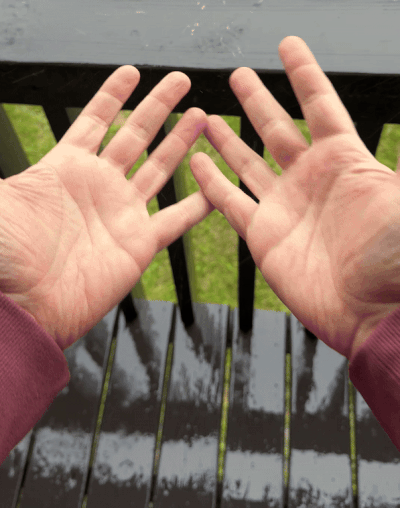A couple of months ago, a young man, Ryan H, asked me to answer some questions as part of a project he was working on for a youth magic group he’s a part of.
I don’t really feel I have anything to say to the youth. My biggest contribution to the younger generation in magic is that I created the GLOMM. And, to be honest, saying, “Hey guys, can you please not molest kids?” is just about the least you can do for children. Yes, I know it’s more than any other magic organization is willing to say, but I’m hardly a hero to the youth.
Anyway, here are Ryan’s five questions and my answers.
What trick have you performed the most in your life?
Structurally, it’s John Bannon’s Directed Verdict (Spectator Cuts to the Aces). I say “structurally” because almost all the time I don’t present it as a spectator cutting the aces, but it’s the same method.
As far as a specific trick I’ve done the most without varying it much, it would likely be Jazz Mentalism by David Humphrey. An ESP match-up routine.
Mentalism seems to get the strongest reactions. Do you think kids should perform mentalism?
Honestly, a mentalist like Derren Brown is most intriguing because people are wondering where the line between fiction and reality exists. Perhaps his mind really can do these things? Nobody is going to believe this about a 9-year-old. They’ll assume everything is just a trick. So you lose that benefit of mentalism.
I’m not saying don’t do it, I’m just saying it won’t be as strong. But perhaps that’s true of all magic.
I’ll say this… Usually, mentalism gets the best reactions because you can’t completely eliminate the role of the spectator. People want to feel like they have some kind of part in what you’re doing besides watching you or holding a coin for you or something.
Instead of worrying about what branch of magic you’re doing and what gets the best reactions, worry about ways of making the people you perform for feel more essential to the experience.
What makes magic a good hobby for kids?
I answered this many years ago, so I’m going to copy that answer and put it here.[The only change I’ve made to the answer is to substitute “stuff” in for “shit” due to your young age. Also, forget that I just said shit…]
Magic encompasses everything because it is essentially nothing. Magic doesn't exist. So when you learn magic you're not really learning magic. Instead, you are learning dozens of other arts and crafts that allow you to present the illusion of magic. Whenever I talk to friends with kids, and we talk about hobbies for the kids, I encourage them to get into magic. Magic is a great gateway to the world around you, and it helps you identify your passions. Outsiders just think of it as sleight-of-hand. But I can't even begin to list all the areas I've had to explore in order to learn and present a particular trick, or magic in general. Writing, acting, comedy, electronics, memory and mnemonics, psychology, gambling, topology, cons, filmmaking, cold reading, juggling, crafting, dance, mime, mathematics, science, history, carpentry, theater, origami, sewing, forgery, animal training, drawing, optics, physical fitness, puzzle solving, and so on and so on. I love that "doing magic" might involve rubber cementing a bunch of stuff together, or memorizing the most popular female names of the 20th century, or determining the sight-lines and angles of every seat in a theater so you can build a stage to vanish an elephant on. Other hobbies don't have that range. If your kid plays piano it's not like, “Oh, well sometimes she sits at the piano and plays with her fingers, and other times she uses different colored light rays to make you think you heard the song.”
Does anything make you sad about writing The Jerx?
I don’t get too sad in general. I’m lucky that way.
When people rip my stuff off, that’s a bummer.
And sometimes I get sad for magicians when they say stuff like, “I love your work, but are all those things you write true?”
I don’t really care if people believe what I write for my sake. But all I really write about is performing for friends or people I meet in my day-to-day life. They’re pretty low-key stories of hanging out with people whose company I enjoy. I’m not like, “And then the Sultan of Brunei saw my Ambitious Card routine and said I was the greatest magician alive and gave me a helicopter!”
On the site (and more so in the books and newsletter) I write about my experiences spending time with friends and showing them magic. It’s a bit depressing if magicians can’t relate to that.
Should kids read The Jerx?
Sure, if they want. Smart ones should. Dumb kids should read the Vanishing Inc blog or something more their speed.
When I was a kid, I was always in the advanced or gifted classes. I believe a lot of that was due to the fact that I tended to hang out with older kids and read things that were made for an adult audience. I started reading Stephen King when I was like eight. You may say I’m confusing cause and effect here, but I don’t believe so.
This isn’t saying much, but The Jerx is the smartest writing on magic being done anywhere. While there are certainly things that aren’t for kids on the site, you’ve likely heard worse. You’ll read some bad words. But if I was your dad (and I might be) I would just be happy that you’re reading something a bit more challenging than your age might warrant.









